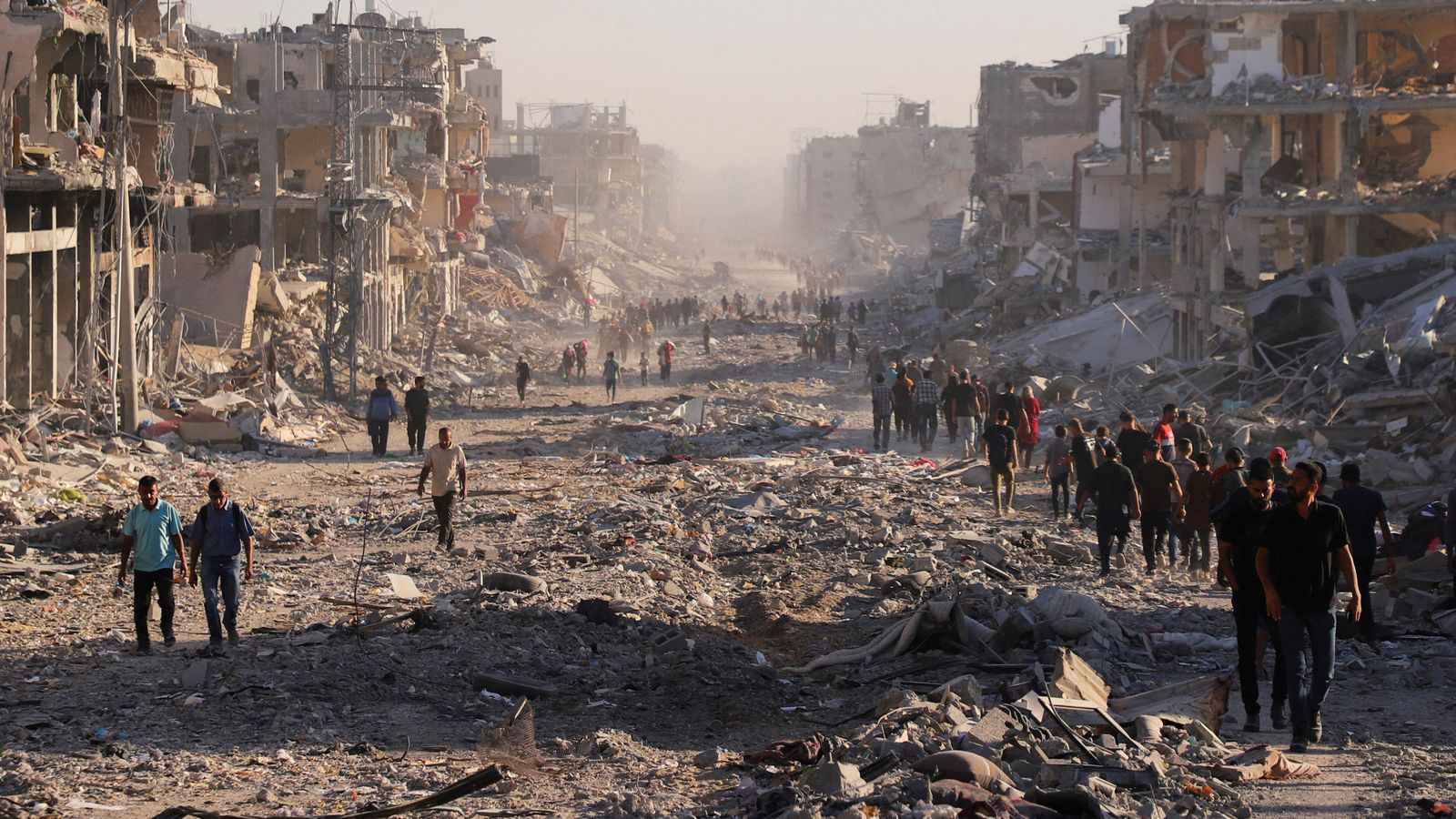
In Nasser Hospital in southern Gaza, they have virtually nothing left to eat.
Warning: This article contains images that some readers may find distressing.
Huda has lost half her body weight since March, when Israel shut the crossings into Gaza, and imposed a blockade.
The 12-year-old girl knows she doesn’t look well.
“Before, I used to look like this,” Huda says, pointing to a picture on her tablet.
“The war changed me. Malnutrition has turned my hair yellow because I lack protein. You see here, this is how I was before the war.”
Her mother says her needs are simple: fresh fruit and vegetables, fish, maybe a little meat – but she won’t find it here.
Huda can only wish for a brighter future now.
“Can you help me travel abroad for treatment? I want to be like you. I’m a child. I want to play and be like you,” she says.
Amir’s story
Three-year-old Amir was sitting in a tent together with his mother, father and his grandparents when it was hit by projectiles.
Medical staff carried out surgery on his intestines and were able to stop the bleeding – but they can’t feed him properly.
Instead, he’s given dextrose, a mixture of sugar and water which has no nutritional value.
Amir’s mother and his siblings were all killed in the attack and his father is no longer able to speak.
“His father is in a terrible state and won’t accept the reality. What did these children do? Tell me, what was their crime?” Amir’s aunt says.
The desperate scenes of hungry children in Gaza have not been caused by scarcity.
There’s plenty of food waiting at the crossings or held in warehouses within the territory. Israel claims the United Nations is failing to distribute it.
Both Israel and the US have taken charge of the food distribution, with the UN’s hundreds of aid centres shut.
Instead, the UN tries to organise convoys but says it can’t obtain the necessary permits – and faces draconian restrictions on aid.
Sometimes food is made available at communal kitchens called ‘tikiya’.
‘I want life to be how it was’
Everyone is desperate for whatever they can get – and many leave with nothing.
“It’s been two months since we’ve eaten bread,” one young girl says. “There’s no food, there’s no nutrition. I want life to go back to how it was, I want meat and flour to come in. I want the end of the tikiya.”
Read more:
Gazan doctor held in ‘inhumane’ conditions
Starvation ‘knocking on every door’ in Gaza
Dr Adil Husain, an American doctor who spent two weeks at Nasser Hospital, treated a three-year-old called Hasan while he was there.
Weighing just 6kg, Hasan should be 15kg at his age.
“He needs special feeds, and these feeds are literally miles away. They’re literally right there at the border, but it’s being blockaded by the forces, they’re not letting them in, so it’s intentional and deliberate starvation,” Dr Husain tells me.
Hasan died two days after Dr Husain examined him.
“It’s just so distressing that this is something man-made, this is a man-made starvation, this is a man-made crisis,” he says.
Israel says it has not identified starvation, but this feels like a situation that is entirely preventable.




















